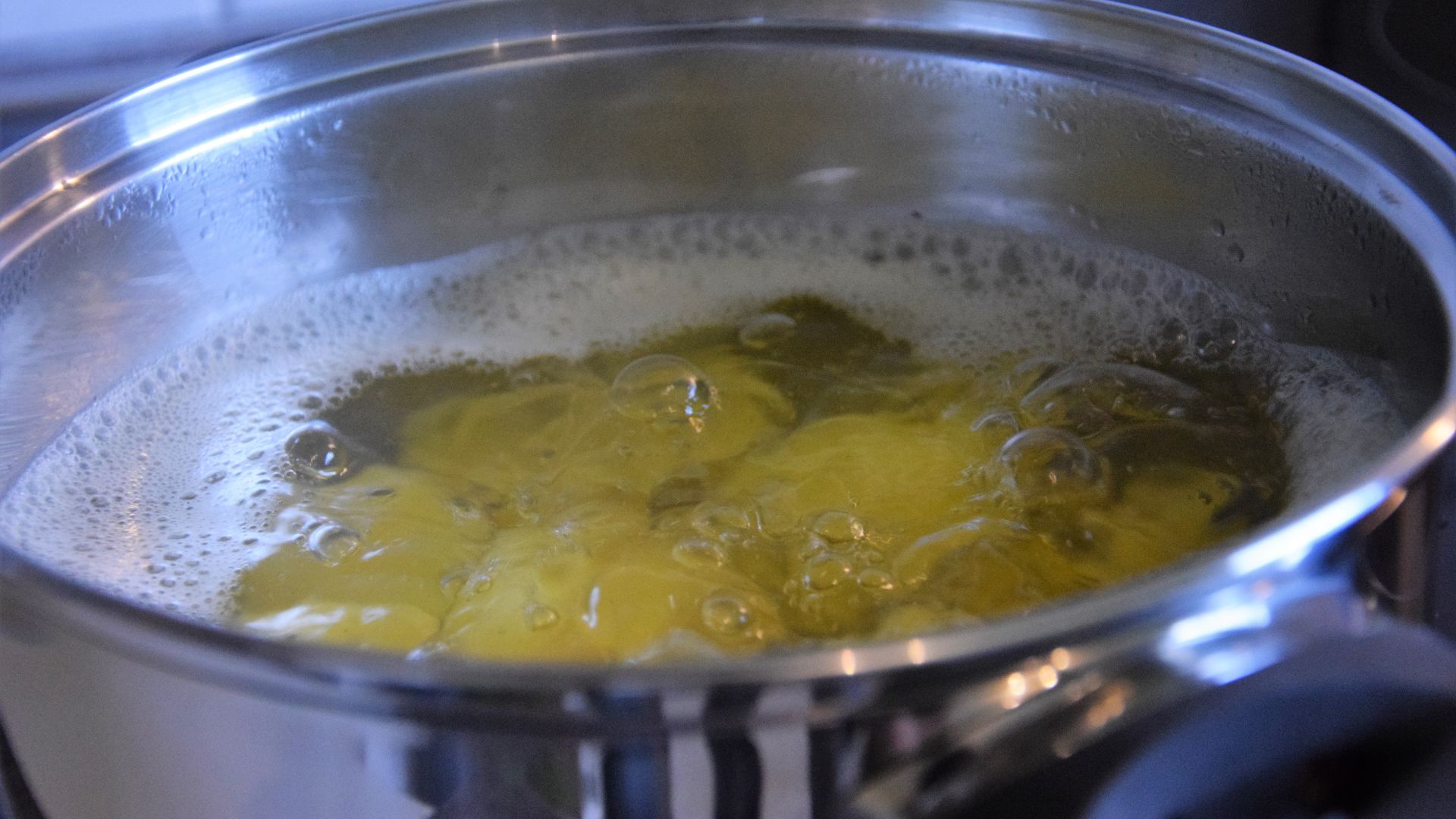Potatoes are a staple food in many households, and for a good reason. They’re versatile, tasty, and packed with nutrients like fiber, potassium, and vitamin C.
However, if you’ve accidentally left a potato in the oven or boiled it too long, you may have wondered whether it’s safe to eat an overcooked potato.
In this article, we’ll take a closer look at the safety of eating overcooked potatoes and what you need to know to make an educated decision about your diet.
What Happens When You Overcook a Potato?
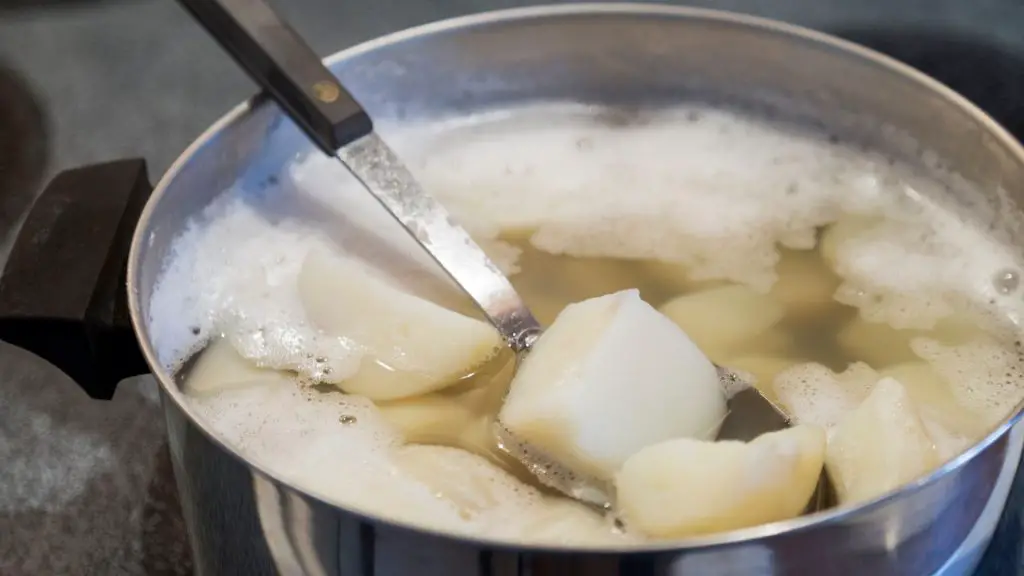
Before we get into overcooked potatoes, it’s essential to understand what happens to a potato when it’s overcooked.
When a potato is heated, the heat causes the starch molecules in the potato to break down and release sugars. This causes a potato to brown and become crispy on the outside when it's fried or baked.
However, if a potato is cooked for too long, the sugars in the potato can begin to caramelize, which can lead to a browned, burnt, or charred appearance.
When a potato is overcooked, it can also become dry, mealy, and unappetizing. But beyond its appearance and texture, is there a reason to be concerned about eating an overcooked potato?
Acrylamide: What Is It?
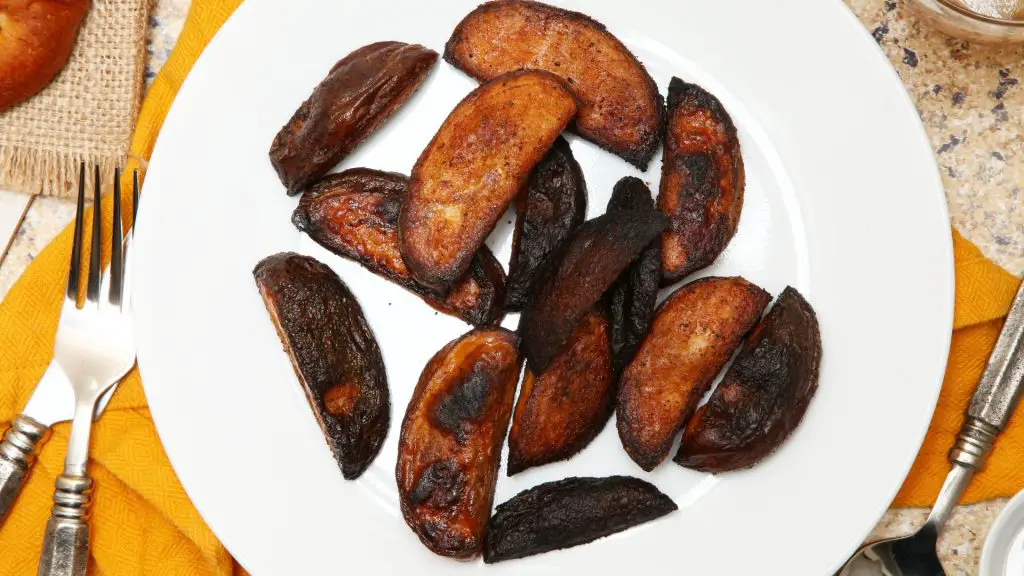
One potential concern with overcooked potatoes is the formation of a compound called acrylamide. Acrylamide is a chemical formed when certain foods are cooked at high temperatures, such as frying, baking, or roasting.
It starts when the sugars and amino acids in the food react to heat, and it has been classified as a potential carcinogen by the International Agency for Research on Cancer (IARC).
Acrylamide is found in many foods, including potato chips, French fries, and coffee. However, it's important to note that the levels of acrylamide in food can vary widely depending on factors like cooking time, temperature, and the type of food being cooked.
The Link Between Overcooked Potatoes and Acrylamide
So, how does overcooking a potato relate to acrylamide formation? Studies have shown that cooking potatoes at high temperatures for an extended period can lead to increased levels of acrylamide.
In fact, the Food and Drug Administration (FDA) has identified French fries and potato chips as significant sources of dietary acrylamide.
One study published in the Journal of Agricultural and Food Chemistry found that baking or frying potatoes for more than 15 minutes at 170°C (338°F) led to significantly higher levels of acrylamide than cooking them for shorter periods or at lower temperatures. Another study found that microwaving potatoes led to lower levels of acrylamide than frying or baking them.
While the link between overcooked potatoes and acrylamide formation is clear, it’s important to note that the levels of acrylamide in overcooked potatoes may not necessarily be high enough to cause health problems.
The FDA has stated that the potential health risks of dietary acrylamide are not yet fully understood, and more research is needed to determine the risk associated with different levels of acrylamide exposure.
The Impact of Cooking Oil on Acrylamide Formation
Cooking oil can also play a role in acrylamide formation, as the high temperatures used for frying can cause the oil to break down and release acrylamide precursors.
You could explore the impact of cooking oil on acrylamide formation and provide tips for using healthier cooking oils that are less likely to release acrylamide precursors.
Is Overboiling Potatoes Good or Bad?
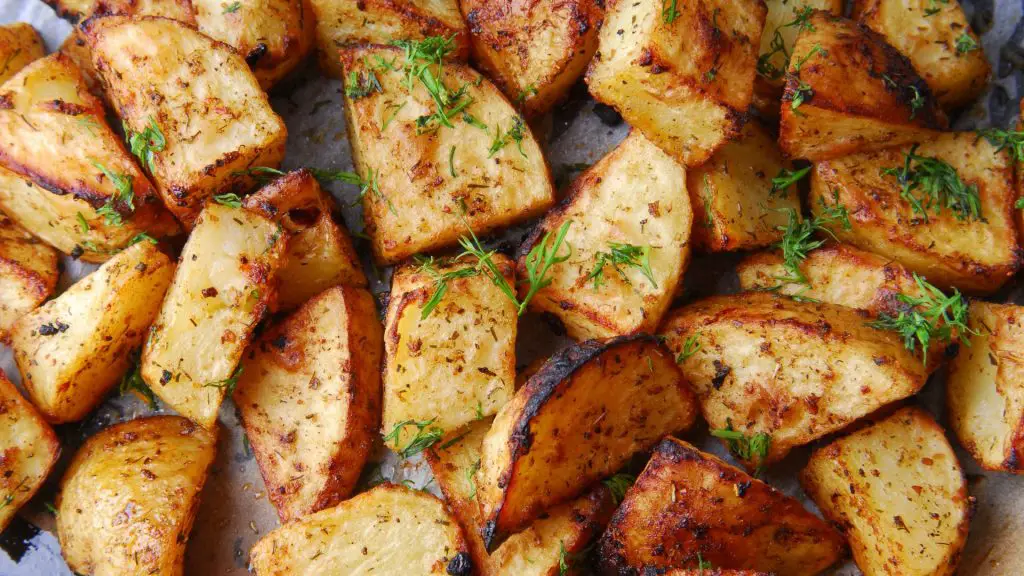
Overboiling potatoes is generally not recommended as they can cause the potatoes to become mushy and lose their texture and flavor.
Additionally, boiling potatoes for too long can lead to a loss of nutrients, as some vitamins and minerals can leach out into the cooking water.
However, it's worth noting that the ideal cooking time for potatoes can vary depending on the type of potatoes and how they are being used.
For example, some recipes, such as mashed potatoes, must be boiled until they are very soft to achieve the desired texture.
In general, it’s best to avoid boiling potatoes for an extended period and to use other cooking methods, such as roasting or microwaving, to help preserve their texture and flavor.
Are All types of Potatoes Equally Affected By Overcooking?
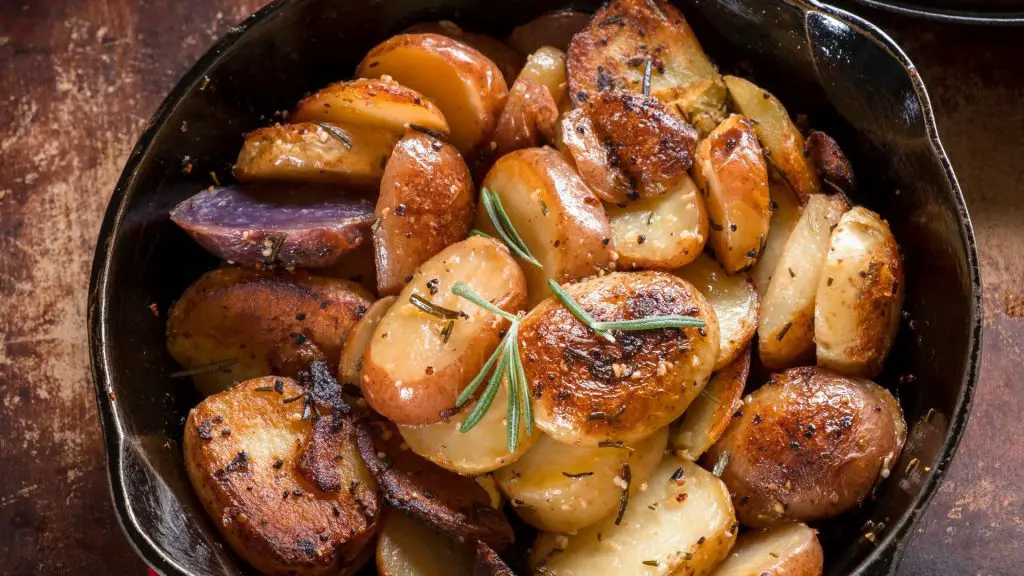
It’s important to note that not all types of potatoes are equally affected by overcooking. Sweet potatoes, for example, have been found to contain much higher levels of acrylamide than white potatoes when they are cooked at high temperatures.
One study published in the Journal of Agricultural and Food Chemistry found that sweet potatoes contained up to 20 times more acrylamide than white potatoes when baked at high temperatures. This is because sweet potatoes contain higher sugars that can react with amino acids to form acrylamide.
However, it’s important to note that the overall level of acrylamide in potatoes is relatively low compared to other foods, and the risk of health problems from consuming acrylamide is still uncertain. In fact, the National Cancer Institute has stated that “the results of studies in people do not provide a clear picture of whether acrylamide affects cancer risk.”
Tips for cooking potatoes safely
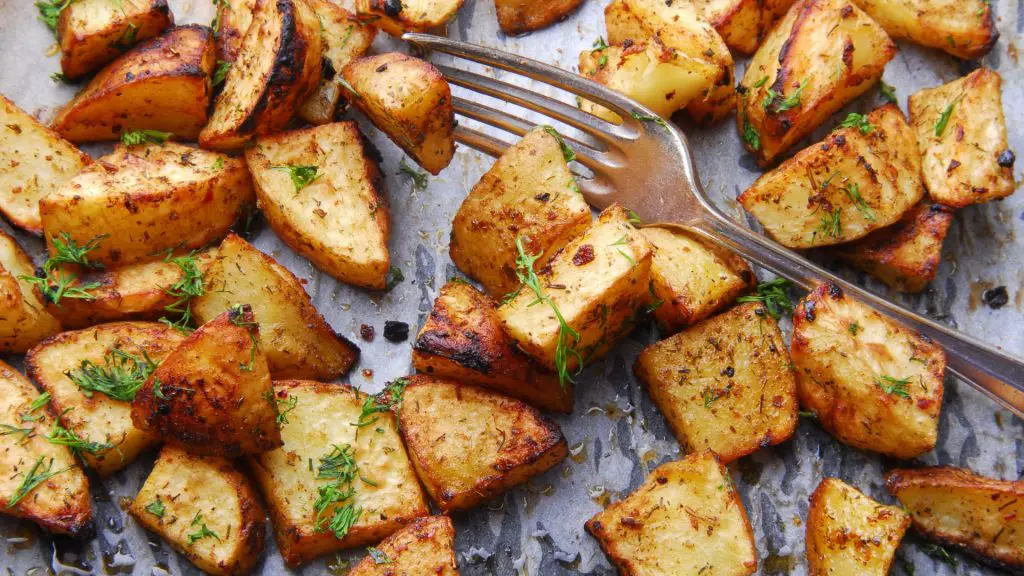
If you want to minimize your risk of exposure to acrylamide when cooking potatoes, here are some tips to keep in mind:
- Cook potatoes at lower temperatures: Cooking potatoes at lower temperatures can help minimize acrylamide formation. Try boiling or steaming potatoes instead of frying or baking them.
- Avoid burning or charring potatoes: Overcooking potatoes to the point of burning or charring can significantly increase the level of acrylamide in the potato. Be sure to keep an eye on your potatoes when cooking them and remove them from the heat as soon as they are cooked to your liking.
- Soak potatoes in water before cooking: Soaking potatoes in water for at least 30 minutes before cooking can help reduce the acrylamide level that forms when the potato is cooked.
- Choose potatoes with lower sugar content: As we mentioned, sweet potatoes contain higher sugars that can react with amino acids to form acrylamide. Choosing potatoes with lower sugar content, such as white potatoes, can help to minimize your exposure to acrylamide.
- Enjoy potatoes in moderation: While potatoes are a nutritious and tasty food, it’s important to enjoy them in moderation as part of a balanced diet. Consuming large amounts of potatoes or other foods that contain acrylamide may increase your risk of health problems over time.
Conclusion
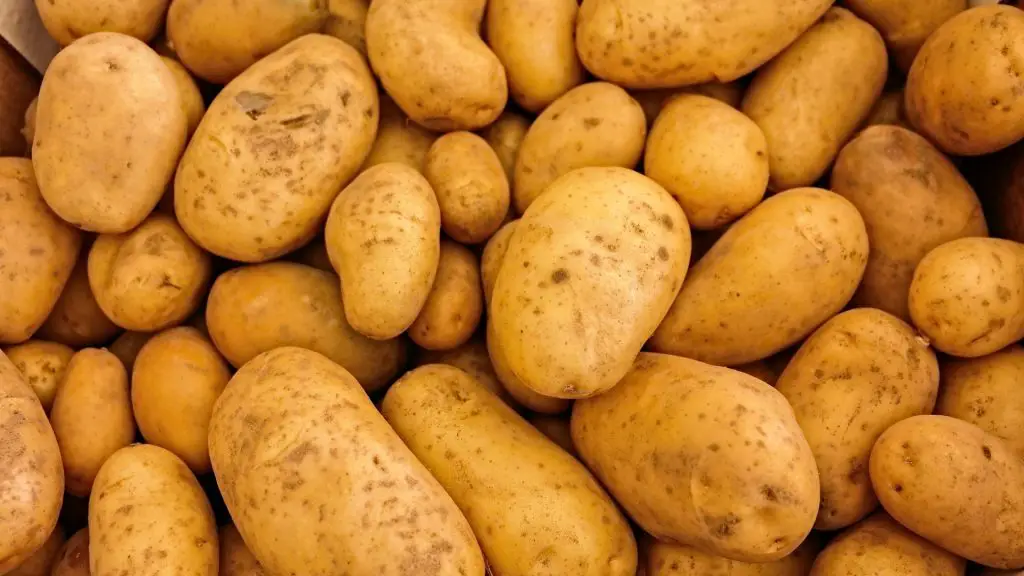
In conclusion, while overcooking potatoes can lead to acrylamide formation, the overall risk of health problems from consuming acrylamide is still uncertain. The best way to minimize your exposure to acrylamide is to cook potatoes at lower temperatures, avoid burning or charring them, and enjoy them in moderation as part of a balanced diet.
By keeping these tips in mind, you can continue to enjoy the many benefits of this versatile and delicious food without worrying about the potential risks. Happy cooking!
